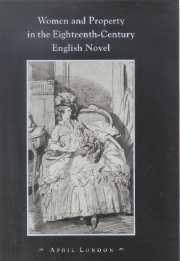Book contents
Introduction
Published online by Cambridge University Press: 14 October 2009
Summary
In their distinctive representations of personal and civic identity, georgic and pastoral reveal the complex affiliations between literary form and social and economic process. As the previous chapter argued, the georgic understanding of individual enterprise as an agent of a progressive social order underwrites that mode's centrality to numbers of eighteenth-century novels. For authors aligned with the emergent middle class, the georgic mode enables the representation of change within the context of an authoritative and continuous tradition alert to the redemptive possibilities of labor. For those writers, however, whose response to the burgeoning commodity culture was more skeptical, georgic's involvement with the forces of reformation signals its inadmissibility as a principle of narrative organization. Accordingly, numbers of conservative writers turned to pastoral as an alternate structure. In doing so, they confirm the political implications attaching to generic preference – whether for pastoral or georgic.
For the conservative writer, the attractions of pastoral derive in large part from its high cultural associations. As a classically sanctioned genre directed toward a privileged audience, pastoral acquired additional appeal to the hierarchically minded by virtue of its decline in literary fashionability over the previous fifty years. In its later eighteenth century incarnations, it comes to stand for an elite ideal of male communion made possible by withdrawal from an interested world. When contemporary novels, then, adapt the formal and thematic conventions of pastoral, they demarcate a masculine realm that sets itself apart from the emergent order, an order they identify with women and their propensity for change and novelty.
- Type
- Chapter
- Information
- Publisher: Cambridge University PressPrint publication year: 1999

